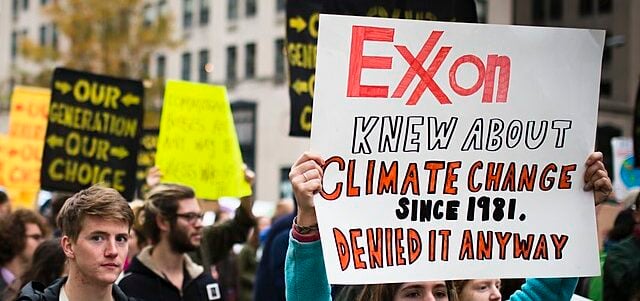
Civil society organisations push for transformative global investment rules
The Entebbe Declaration calls for justice and sustainability in global investment governance
Civil society organisations, grassroots movements, and NGOs working on investment and development-related issues are demanding radical reforms in the global frameworks of international investment agreements. In the Entebbe Declaration, presented last week in Uganda, they put forward a bold and urgent vision for justice and sustainability, transcending regional concerns to address a truly global issue.
On 29 November 2024, more than 40 civil society organisations, grassroots movements, and advocacy groups from across Africa and beyond adopted the Entebbe Declaration, a bold call to reform global investment frameworks and align them with global sustainability goals.
Drafted during the Civil Society Forum “Aligning Investment Policy Frameworks to Climate and Sustainable Development Goals” in Entebbe, Uganda, the declaration challenges outdated economic systems and presents a vision for investment frameworks rooted in human rights, climate justice, and sustainable development.
The Entebbe Declaration
-
 Entebbe declaration (pdf, 13.50 MB)
Entebbe declaration (pdf, 13.50 MB)
Outdated frameworks, deepening inequalities
Current investment frameworks like Bilateral Investment Treaties (BITs) or the Energy Charter Treaty (ECT) have perpetuated global inequalities and exacerbated systemic failures. These frameworks prioritise corporate profits over public welfare, enabling abuses through mechanisms like Investor-State Dispute Settlement (ISDS).
ISDS mechanisms allow corporations to sue governments over public interest policies, discouraging governments from pursuing progressive measures due to fear of costly arbitration. Billions in litigation costs divert resources from essential services like healthcare, education, and climate adaptation.
For Africa, the impact has been particularly devastating. Extractive systems tied to these agreements drain the continent’s wealth and resources while leaving behind environmental destruction and social harm. This systemic exploitation highlights the urgent need for a global shift in investment governance.
A global crisis of governance
The failures of global leadership were on display at COP29, where promises for adequate climate financing once again fell short. Vulnerable regions like Africa are left to bear the disproportionate impacts of rising temperatures, droughts, and floods, with little support.
Meanwhile, fossil fuel corporations, empowered by treaties like the ECT, continue to challenge efforts to phase out fossil fuels and transition to cleaner energy sources. These failures amplify the need for investment frameworks that align with the Paris Agreement and the Sustainable Development Goals.
The Entebbe Declaration: A roadmap for change
The Entebbe Declaration, developed by African CSOs with support from organizations like Both ENDS and SOMO, offers a clear and actionable roadmap for change. It outlines transformative policies to reclaim investment governance for people and the planet.
The Entebbe Declaration:
- Demands sustainable investment frameworks that prohibit exploitative resource extraction and prioritise local value addition,
- Promotes investment in renewable energy, agroecology, and accessible public services.
- Calls for replacing ISDS with strengthened domestic legal systems and equitable regional dispute mechanisms that balance investor rights with public accountability.
- Demands policies that foster technology transfer and build local industrial capacity, enabling African countries to climb the value chain, while ensuring human rights and environmental protection.
The Declaration prioritises African-led solutions to ensure investment serves equitable and sustainable development and demands transparency and inclusive trade and investment negotiations with civil society oversight.
A critical turning point
Adopted at a time of intersecting climate, economic, and governance crises, the Entebbe Declaration underscores the power of civil society to offer bold and actionable solutions where governments and international bodies have failed.
The Declaration calls on policymakers and institutions to adopt a transformative agenda for investment governance, one that prioritizes human rights, environmental sustainability, and economic justice.
As the global community faces compounding challenges, the Entebbe Declaration stands as a rallying cry for systemic change, ensuring that investment frameworks serve not just profits, but people and the planet.
Do you need more information?
-

Bart-Jaap Verbeek
Researcher
Related news
-

-
 ExxonMobil sues the Netherlands over gas field closurePosted in category:News
ExxonMobil sues the Netherlands over gas field closurePosted in category:News Bart-Jaap VerbeekPublished on:
Bart-Jaap VerbeekPublished on: -



